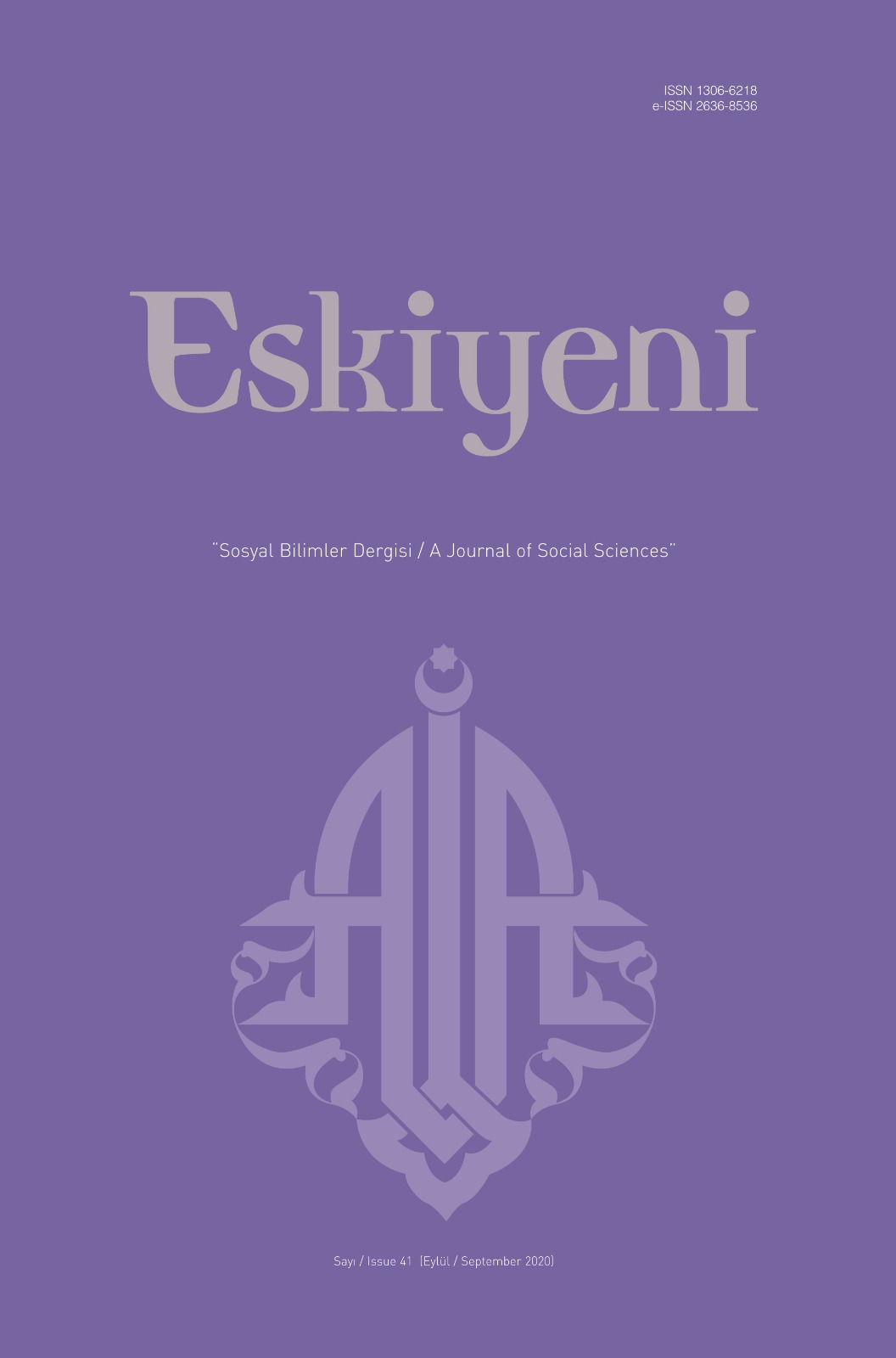İhvân-ı Safâ’da Mizâç Teorisi Çerçevesinde Huyların Değişiminin İmkânı
The Possibility of the Change of Habits within the Framework of Temperament Theory in Ikhwān al-Ṣafā’
Author(s): Asiye Aykıt, Gülistan KızılenişSubject(s): Theology and Religion, Islam studies
Published by: Anadolu İlahiyat Akademisi
Keywords: Moral Philosophy; Ikhwān al-Ṣafā’; Theory of Temperament; Tabdīl al-Akhlaq; Nafs; Quwwāt al-Nafs;
Summary/Abstract: Ikhwān al-Ṣafā’ is a philosophical community that emerged in Basra in the 4th (H)/10th century. This community conducts its activities in the form of secret meet-ings and conversations. Rasā’il Ikhwān al-Ṣafā’, which consists of 52 treatises whose author or authors have been kept secret, belong to them. It is thought that Risālat al-jāmi‘a which is the essence and summary of these treatises belongs to them. Although this community is Shiite, its treatises have become the handbooks of Shiite Ismaili groups. Rasā’il Ikhwān al-Ṣafā’ have an encyclopedic content. There is information on many branches of science from mathematics to metaphysics, from geography to astrology in the Rasā’il. It is said that by some researchers the primary theme in Rasā’il is morality. Ikhwān al-Ṣafā’ expresses the mission of Rasā’il as a purification in the religious and moral field and they believe that the way to do this is philosophy. There are also various speculations that the Rasā’il have some kind of political propaganda. However, in the aspect of our study, Rasā’il are scientific works with a rich content in the field of moral philosophy. It is clear that the theory of temperament (mizaj) has an important place in the moral philosophy of Ikhwān al-Ṣafā’. The subject of this study is the possibility of change of natures within the framework of temperament theory in Rasā’il Ikhwān al-Ṣafā’.In the dictionary, temperament (mizaj) means mixture, and as a concept, it expresses the mixing ratio of akhlāṭ arba‘a that constitutes the physical structure of human beings. Body fluids (blood, sputum, black bile and yellow bile), which are the basic building blocks of the human body, are called akhlāṭ arba‘a. According to Ikhwān al-Ṣafā’, each of these body fluids should be present in the body in equal amounts. The difference or imbalance between the amounts of these fluids affects the physical health status. Temperament is a medical theory in terms of its effects on physical health. It has a central place in the medical understanding of Hippocrates, Galen, and Avicenna. Galen was the first to evaluate temperament as a moral theory. Galen said that the temperament of the body also affects the morality and nature of the human being. He explained this relationship between the physical structure of human and his spiritual structure through his nafs (soul) and quwwāt al-nafs (faculties of soul).The theory of temperament expresses the connection between the physical and metaphysical aspects of human beings. Because of this connection, the relationship of temperament with its nafs and quwwāt al-nafs is important. According to Ikhwān al-Ṣafā’, vegetative and animal quwwāt (forces) have a direct relationship with the mood of the temperament body. There is an indirect relationship between the nâtık (reasonable) quwan and the temperament of the body. This relationship between the temperament of the body and quwwāt al-nafs is reciprocal and continuous. In this respect, a change in the temperament balance of the body also affects the actions of the quwwāt al-nafs. The acts of the nafs constitute the morality and nature of the human being. Balance of nafs in its actions is called virtue; opposite of this called vice. Since the virtue of human actions depends on the moderation of quwwāt al-nafs, the moderation of the temperament in relation to the nafs is also important at this point. The relationship between temperament and quwwāt al-nafs is an important issue addressed in this study.In the moral philosophy of Ikhwān al-Ṣafā’, the temperaments are discussed in two parts. These are natural habits and acquired habits. Natural habits are the habits that human beings have from birth and those that settle in their nature in childhood. Acquired habits are habits acquired later. In the Rasā’il, it is mentioned that natural habits are shaped according to the temperament of the body, climatic and geographical structure, the effects of astrological situations, and education and social environment. Since temperament plays a role in shaping human nature, it has a direct effect on natural habits. In this framework, people have four types of nature. These are dry, wet, cold, and hot natures. Although these are expressed with the concept of nature in Rasā’il, they also refer to temperament types. Due to the ever-changing balance of temperament and its relationship with quwwāt al-nafs, it has an effect on the acquisition of new habits. In this respect, temperament has an indirect effect on acquired habits. Therefore, temperament both shapes natural habits and is effective in the change of these habits. In this context, the role of temperament in changing habits becomes important. Temperament was sometimes seen as an obstacle in terms of the change of natural habits and the acquisition of new habits, and it was defined as an unchangeable established structure. However, according to Ikhwān al-Ṣafā’, temperament is a factor that makes this change possible, rather than being an obstacle at this point. In this study, the possibility of changing natural habits is discussed within the framework of temperament theory. While the first part of the article mentions the theory of temperament, in the second part, the possibility of change of habits discussed in the context of temperament theory.
Journal: Eskiyeni
- Issue Year: 2020
- Issue No: 41
- Page Range: 515-540
- Page Count: 26
- Language: Turkish

